The Key to Understanding Blazers General Manager Joe Cronin
The Portland Trail Blazers will face plenty of interesting decisions this summer. Whom to select with the 11th pick of the 2025 NBA Draft will be the first…or even before that, what to actually do with that asset. Trades, free agent signings, and potential contract extensions await afterwards.
At the center of all of this stands Joe Cronin, Blazers General Manager. The Blazer’s Edge Mailbag seldom goes a week without a question or two about Portland’s lead executive. This offering is typical of some that we’re getting this summer. Take a look.
Dave,
Another summer another set of disappointments. I know the 11th pick isn’t Cronin’s fault. It figures though. Dallas gets Cooper Flagg while we’re facing another set of mind numbing decisions that give me a headache. Really, we’re talking about extending players who have no business being on the team? It’s a choice between bad and worse. I place the blame at Cronin’s feet. Answer me honestly. Do you really think he’s done a good job? I don’t see how you could defend where this team is under his management.
Ryan
Here’s the verdict so far: Joe Cronin hasn’t done a good job as much as he’s done a hard job. I don’t think we can overestimate how difficult the journey he’s navigated has been.
Cronin inherited his position mid-season in 2021 off of an investigation and dismissal of his long-term predecessor. That’s two strikes right away.
The first is assuming a position you weren’t formally prepared for, especially when this is your first time occupying a seat at that level. The challenges there should be obvious.
The second is following a prominent, long-term, at least semi-successful executive. Leaders don’t start with blank slates, able to implement any agenda they please. The institution has been shaped by the patterns and habits of their predecessor. Everything from communication style to job expectations comes ready-made, grooved in familiar ditches. Getting on a new road requires motivating people out of those ditches and back on the highway. That’s not easy when you’re dealing with real people, serving their own priorities, particularly since doing things the way they’ve always done them is far easier and more within their base of competence.
Following a long-term executive, inertia and assumed expectations will be the first enemy to be conquered. Many new leaders don’t make it past their second or third year, failing to accomplish this.
Adding to the issue for Cronin was the puzzle of Damian Lillard. Like Neil Olshey, Lillard had dominated the landscape in Portland for more than a decade. Unlike Olshey, Lillard was very much present, still the center of organizational gravity. Olshey had failed to solve the problem of building a championship contender around Lillard. As he was dismissed, he was rapidly approaching the “fish or cut bait” decision point with the franchise’s most prominent superstar since Clyde Drexler. That decision, and its fallout, now fell into Cronin’s lap.
Frankly, it was a no-win situation for the new General Manager. If he continued to make peripheral moves around Lillard, the likely outcome was a slow decline into irrelevance. If he changed course, the public relations fallout of trading the face of the city would be significant. Either way, Lillard was unlikely to be happy.
Realistically, the decision wasn’t entirely in Cronin’s control anyway. Lillard himself would have the final say over demanding a trade or not, a superstar’s privilege in the modern NBA. The response to Lillard’s wishes would ultimately land above the General Manager’s office, as ownership would certainly be interested in the fate of their most significant player. Nobody trades a celebrity of Lillard’s stature without signing off six times over.
From the start, Cronin was navigating between forces he could not direct completely. Surviving that kind of struggle is an accomplishment in itself.
The path became more treacherous when another force entered the fray in the person of Pat Riley and the Miami Heat. South Beach was Lillard’s preferred (and only) destination. Knowing this—and engaging in fairly typical upper-echelon hubris—the Heat offered a package that Cronin could not accept in good conscience, centering around offensive guard Tyler Herro.
This was Cronin’s entry onto the national stage. For an entire off-season Portland became the center of NBA discussion, an uncomfortable position for the otherwise-anonymous franchise. Half of the professional “experts” lambasted the GM for his obstinance, holding up a high-profile trade with a marquee franchise. How dare he disturb the summer’s hottest narrative? The other half lauded his courage, saying if he capitulated to the pressure, Portland might as well wave a white flag on behalf of all the league’s small-market teams.
Ultimately Cronin made a compromise move, trading Lillard to the Milwaukee Bucks to partner with long-time friend Giannis Antetokounmpo. In return he received center Deandre Ayton, forward Toumani Camara, a fleet of veteran guards whom he turned around into other assets, and future draft capital. It wasn’t a franchise-resurrecting moment, but the return was reasonable considering the circumstances, certainly better than Miami was offering.
With that major issue past, Cronin then settled down to manage the franchise during its newly-founded rebuild. Doing so, he faced the reality of having no usable cap space, little or no ability to add salary, and very little to trade on the open market now that Lillard was gone. Given the state of the books, that situation was likely to last for years.
The decision to re-sign veteran forward Jerami Grant—a move made before Lillard departed—was emblematic of the issue. Grant had been acquired the year prior, Cronin’s first, in many ways only, attempt to bolster the future for Dame. Portland got the Olympian, a 20-point scorer, for a song: a first-round pick and a couple seconds. The low price came courtesy of Grant’s expiring contract. The Detroit Pistons knew Jerami wasn’t coming back. They extracted the value they could, to Portland’s benefit. Re-signing Grant to a new deal was presumably a quid pro quo of the acquisition.
It wasn’t that easy, though. The matter was complicated by Lillard’s unrest and impending trade request. Cronin surely knew Dame’s departure was a possibility. What was he to do with Grant? If he refused to sign—or even lowballed—his new forward, Grant would walk. Losing the team’s second-best player for nothing would not only waste the assets traded for him, it would all but push Lillard out the door. Nor would the Blazers generate any cap space by letting Grant go. There was no benefit to ending that relationship save the future cost of his contract. But if he did re-sign, Grant would likely become a veteran playing on a restructuring team. Cronin would now hold a shiny, expensive doorknob without an actual door. The portal itself was on the way to Milwaukee.
In the end, Cronin struck a deal with Grant, paying him fully—some would say generously—and establishing that the franchise would remain true to its word and its players. It wasn’t a good decision. It wasn’t a horrible decision. It was probably the only decision that could have been made under the circumstances.
This has typified the issues facing Cronin through most of his tenure. You can repeat the story with Anfernee Simons’ contract extension, with the third overall pick in the 2023 NBA Draft (high enough to expect a star, short of obvious franchise-changer Victor Wembanyama), with decisions about the prominence and future of Shaedon Sharpe. Each inflection point offered options; none of them were completely right. More to the point, none of them were going to change the landscape enough to matter.
Only now, in the Summer of 2025, on the heels of a contract extension himself, does Cronin have claim to a franchise that is wholly his with decisions that actually make a difference. If he wishes, Portland’s General Manager can generate real cap space in the Summer of 2026 by letting go of veterans…a first for him. He also has the option to extend those same veterans or to trade them. He has the beginnings of a young core with defined strengths and needs to build around. He has draft picks, present and future, to work with. Over the next 16 months, Cronin will have more opportunity to make decisions that are significant, franchise-changing, and self-contained than he’s had since he assumed the central chair.
In true Cronin style, this comes at the exact moment that the team is being sold. His newfound freedom is about to be complicated by a new set of bosses with completely different approaches and priorities. The timing of that transfer will be interesting. It would be ironic, and narratively consistent, for Cronin’s unfettered autonomy to get curtailed just as it finally took flight. It would be doubly ironic if new ownership opted for new management as well. You struggle through traffic, throw on your tuxedo, head to the podium, face the orchestra, raise your baton for the opening note, and just at that moment someone comes and takes it away.
If that happened, though, at least Cronin would leave his replacement a cleaner slate than he got and more opportunity to exercise it. For that, he deserves some credit.
In some ways it’s a miracle that Joe Cronin is still in this position. Most people wouldn’t have been able to negotiate the undercurrents in Portland over the last four years, let alone ride the waves themselves.
Whether he’s done well as a GM is hard to say. The Blazers haven’t gone anywhere significant. He certainly won’t be mentioned with Riley, Sam Presti, and famous General Managers of yore. As an executive, though, Cronin has acquitted himself pretty well. Having to make the distinction between basketball decision-maker and organizational executive shows some of the problem with the Trail Blazers in recent years. But hey, like so many other things surrounding this team, that isn’t Joe Cronin’s fault.
If we can’t say Cronin has done a good job, at least we can say he’s negotiated plenty of difficult situations and remained on his feet. If he gets the chance to take this all the way, we’ll be able to pronounce judgment on his actual basketball moves in another couple years. The young Cronin disciples on Portland’s roster will be entering their primes and he will have had plenty of opportunities to make moves around them. If not, we’ll at least be able to thank Cronin for steering the franchise through treacherous times and giving somebody else a shot to run with it. That may not be the most satisfying epitaph, but given the circumstances, it’s within the bell curve of acceptable performances.
Thanks for the question! You can always send yours to blazersub@gmail.com and we’ll try to answer as many as possible!
Share this content:
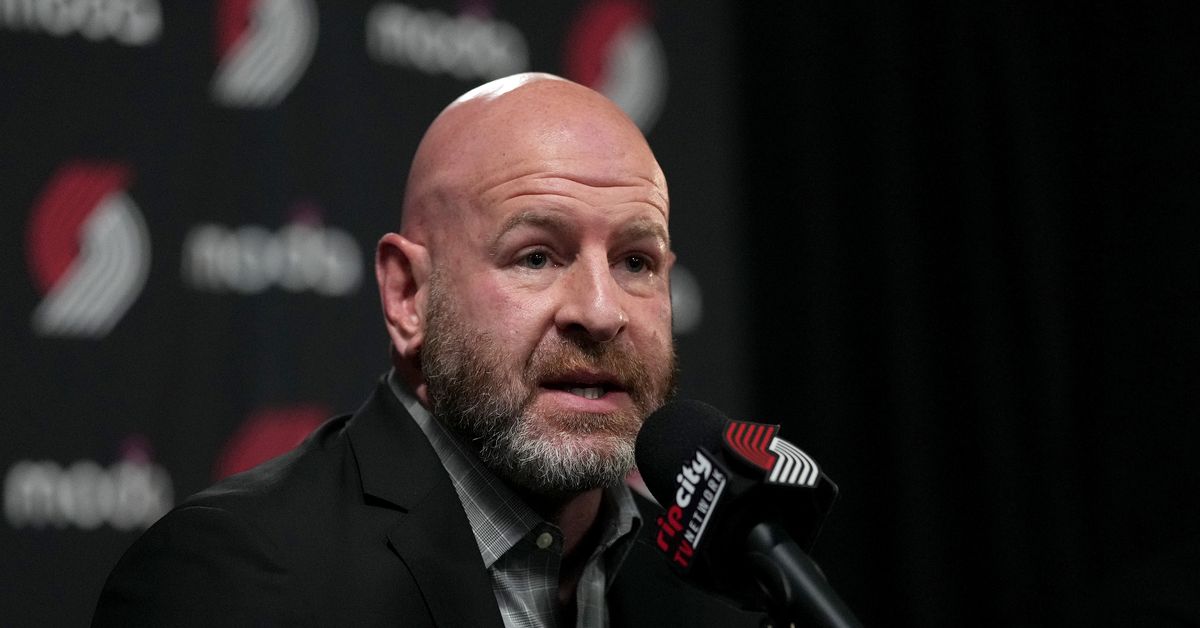


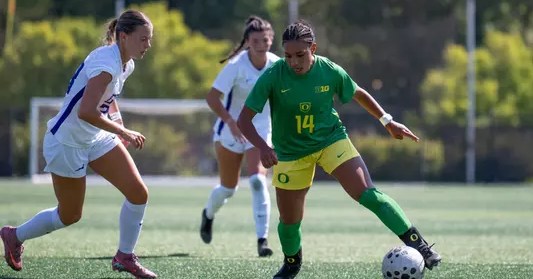
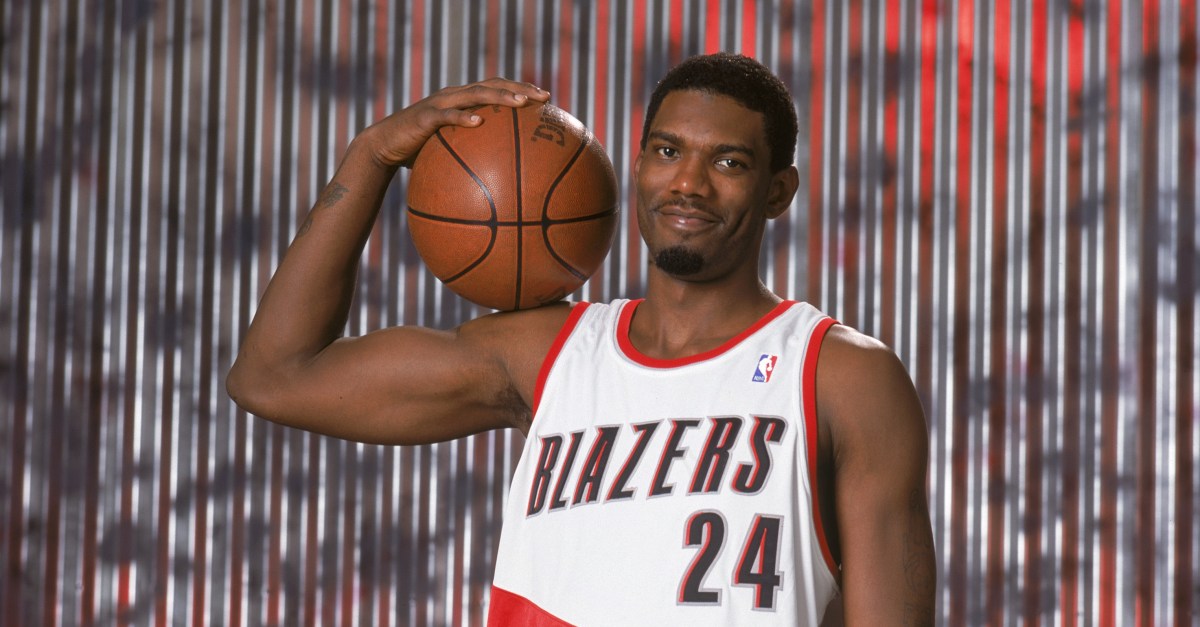


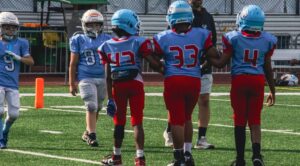
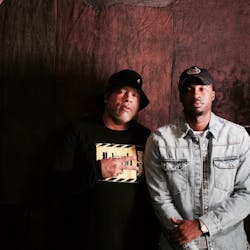

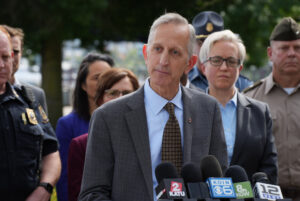

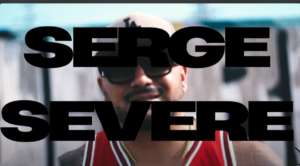


Post Comment